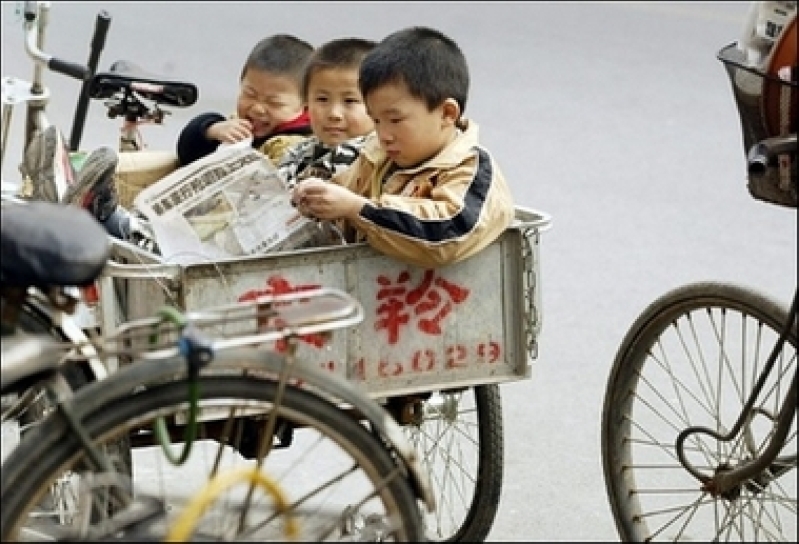
Beijing has come under fire, Monday, after a BBC report revealed the number of China's senior-citizens has far exceeded that of younger people as a result of the one-child policy.
“China's one child policy, which has heavily skewed the ratio of young people to retirees, is placing an increasingly heavy burden on the next generation of workers,” stated LifeSite.com, a pro-life website managed by Canadian-based Campaign Life Coalition.
The BBC report, this past Thursday, told the story of four-month-old Jie Jie Cai, who is expected to support his family of six adults – four grandparents and two parents – when he grows older.
The Cai family’s story is not unique to that of many in China.
In the world’s most populous country, the number of elderly is quickly overtaking that of the youth.
Numerous schools starved of schoolchildren have reportedly been converted into senior homes, where filling vacancies is not often seen as a problem.
In May, state media boasted that more than 400 million births were stopped in the last three decades since the one-child policy was implemented.
Critics of the one-child policy have pointed out that China’s cost-of-living may skyrocket because there are far fewer younger workers to replace China’s aging work-pool – a potential crisis that may worsen the younger generation’s burden of supporting millions of elderly.
"It's very difficult, and it's getting more and more difficult," factory owner William Wang said to the BBC.
“Now there are a lot more factories and fewer workers because of the one-child policy. Costs are going up. It's not looking good.”
In rare exceptions, some couples are exempt from the one-child policy.
Divorcees, whom have children from previous marriages, are allowed to give birth to one more child if they remarry. Some ethnic-minority families are allowed to have multiple children.
Far Fewer Wives for the Bachelors
Other critics of the one-child policy have pointed out that there are far fewer women to marry China's more than 70 million bachelors.
Parents especially those in rural-sectors tend to favor raising male children, the traditional family-breadwinner.
The increasing availability of ultrasound technology in the 1990s made it easier for pregnant-women to abort female fetuses in favor of birthing males.
It is unknown how many female infants are simply killed or simply left to die, though female-infanticide remains illegal.
In an ironic twist, many regions especially those in rural-sectors have experienced shortages in young, unmarried women - since many have migrated to the cities to find work, and never returned.
The lucrative, but illegal, selling of women as wives remains common especially in such places, where local families with girls can afford to be picky - simply choosing bachelors who can pay a high dowry, and thus ensuring the financial future of the bride.
These illegally-arranged marriages are often arranged by traveling brokers - who lure, trick or sometimes kidnap young women from other regions. Prettier brides often fetch a higher price.
In May, government officials admitted that the disproportionate number of females has become a serious problem in China.
"Such serious gender disproportion poses a major threat to the healthy, harmonious and sustainable growth of the nation's population,” Li Weixiong, deputy chairman of the family planning committee of the Chinese People's Political Consultative Conference, said to Canadian newspaper Toronto Star.
Li added that skewed male to female ration “would trigger such crimes and social problems as ‘mercenary marriage,’ abduction of women and prostitution."
Last week, state media reported that the central government was working on family planning laws that would ban sex-selection abortion to curb the number of female-infanticide.
The government, nonetheless maintained that the one-child policy will remain.







